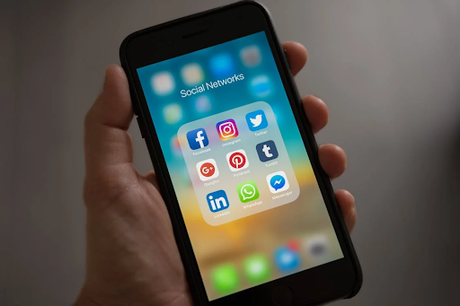There are several things that you can do to prevent social media risks. One of them is to use different passwords for each account. Another is to enable two-step authentication. You should also make sure that you keep your accounts monitored. To know the social media security tips to eliminate cybersecurity risk, continue reading this blog.

Create A Strong Password
If you want to eliminate risks on your social media accounts, you should use strong passwords. However, it is not easy to create a strong password. You can make your life easier by using a password manager application.
Using a password manager will allow you to generate complex and secure passwords. It will also help you remember your passwords and keep them safe. A password manager is great for people who have many online accounts.
Many users have a tendency to reuse their passwords. This is a major security risk. To minimize this risk, you should create unique passwords for every account.
Passwords should be composed of a combination of uppercase and lowercase letters, numbers, and symbols. Longer and more unique passwords are harder to guess.
Also Read: 9 Best Virtual Classroom Tools
Use A Different Password On Each Of Your Accounts
One of the best ways to protect your personal information is to use a different password for each of your social media accounts. This will help prevent a hacker from accessing your accounts and even compromising your email.
If you use a single password for all of your social media accounts, your account could be vulnerable to phishing scams or even a malicious link on Facebook. You can also increase your security by using an app that provides advanced features like two-factor authentication.
Using a strong and complex password is essential to keep your online identity safe. A password manager can be helpful in this regard, but you should still change your passwords regularly.
The best way to keep your passwords secure is to ensure that only you can access them. For example, use separate e-mail accounts for each of your social media accounts.
Enable Two-Step Authentication
Two-factor authentication, also known as dual-factor authentication, is a security feature that adds an extra layer of security to online accounts. It uses a second piece of information, such as a phone or password, to verify the user’s identity.
Many popular services, such as Facebook, Twitter, and Gmail, offer two-factor authentication. To activate it, you’ll need to enable it in your settings. You can do this by going to Settings on your device. If you’re using a Mac, go to System Preferences and look for two-factor authentication.
Using 2FA has the potential to help you avoid serious theft. You’ll need to enter a code when you sign in to your social media accounts. This code is issued by your service provider. Once it’s verified, you’ll have access to your accounts.
Also Read: Why Studying through Social Network Is Our Future
Monitor Your Accounts
If you want to protect yourself, you should monitor your social media accounts. This is important for several reasons. One is to prevent identity theft and fraud. Another is to ensure that your information isn’t sold to scammers on the dark web.
Aside from monitoring your own accounts, you should also make sure that your devices are secure. Many sites let you see when your account has been logged in, which can be useful for tracking down a potential hacker.
You should also consider using two-factor authentication. This means that you will receive a code on your mobile phone when you try to access your account. The idea is to create a strong password that is difficult to crack. Choosing complex passwords that are at least fifteen characters long is a good start.

Use a VPN to Protect Your Online Presence
If you’re looking for an ultimate way to protect your online presence, you’ll want to use the best VPN. This tool will mask your IP address and block tracking tools. The key is to use a VPN on all of your devices.
A VPN is a network that encrypts all traffic. It makes it impossible for your ISP to track your browsing activity. They can also sell your browsing information to advertisers. In the case of a data breach, your personal information could be compromised.
Your IP address can reveal your home location, credit card numbers, and more. This information is vulnerable to eavesdropping. When you connect to public Wi-Fi, you may leave your personal information open to thieves. Hackers can access your username and password when you pass through a shared WiFi point.
Some VPN services even provide a multi-device plan. You can connect your laptop to the VPN, then use your tablet and your phone to browse the internet. However, you should always keep in mind the laws of your home country.
A VPN also enables you to hide your online activities. You can obfuscate your browsing history and prevent ads from appearing on different websites. But keep in mind that the privacy benefits of using a VPN might be nullified if your ISP monitors your usage.
There are many VPN companies on the market. Prices vary, and plans are available for yearly or monthly subscriptions. Choose one that offers the right level of protection for your needs.
Interesting Reads:
E-Learning vs. Classroom Learning: Choosing a better Alternative
Create Virtual Classrooms With LearnDash
Why To Create A Virtual Classroom?
